*** Proof of Product ***
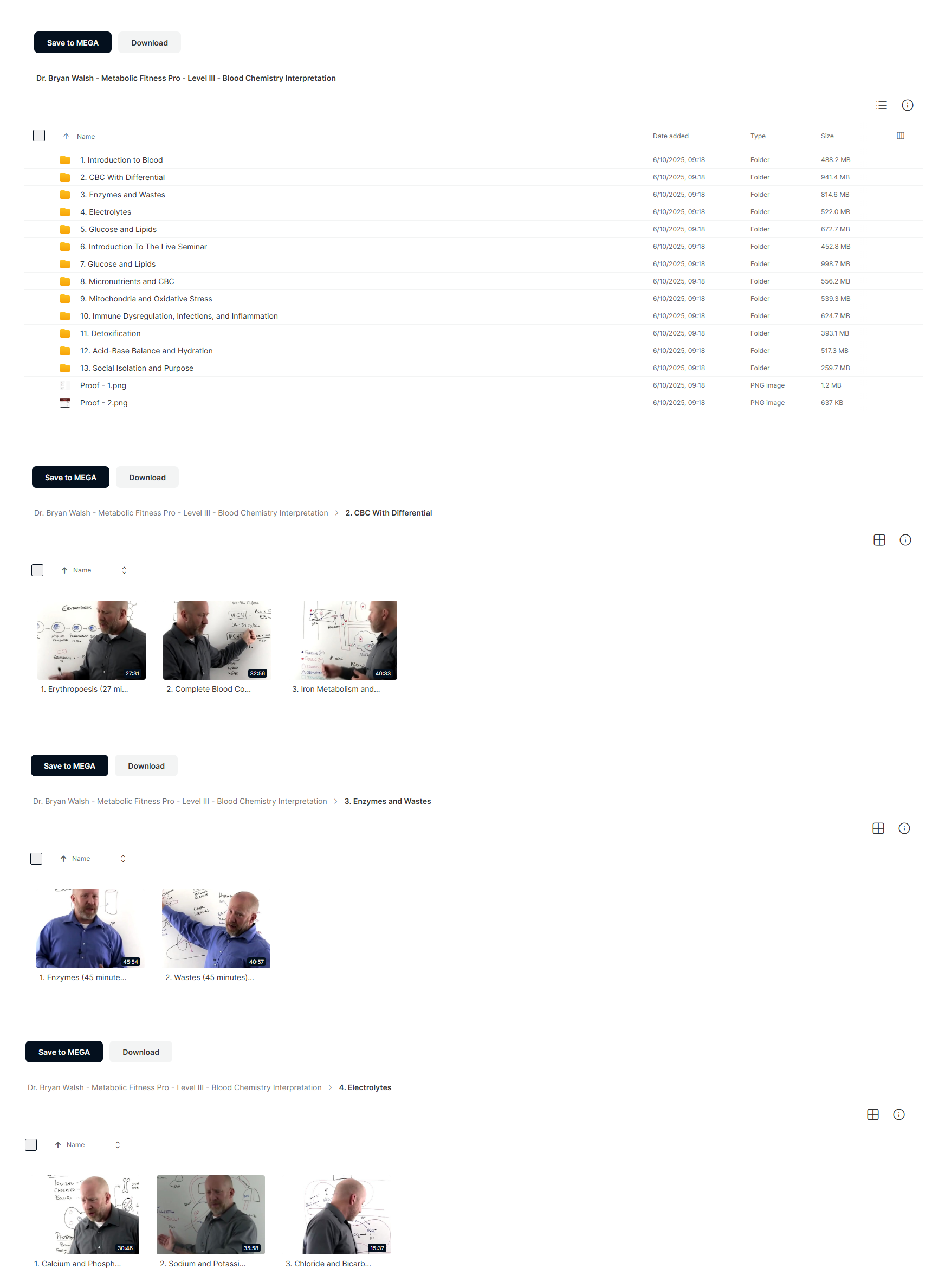
Exploring the Essential Features of “Bryan Walsh – Metabolic Fitness Pro – Level III – Blood Chemistry Interpretation”
Learn How to Accurately Interpret Blood Chemistry Panels
“MINDBLOWING! I’ve taken many blood chemistry trainings in the past and nothing compares to this! You will be wondering why you were never taught this – it’s because no one has ever pulled together the research like he has.” – Heidi L. | CNS
Blood Chemistry is the Most Important Test You Can Run.
There is no other test available today that provides as much information, scientific validation, reproducibility, or accuracy as the blood chemistry test. Unfortunately, this is often neglected in functional medicine practices. More and more clinicians are choosing to evaluate their patients using newer and more expensive functional lab tests, despite their questionable validity, absent proof of accuracy, and limited clinical use.
But, Not if you Aren’t Reading it Correctly.
While most clinicians take a course on blood chemistry interpretation either during their formal schooling or through continued education, few receive the education necessary to accurately evaluate blood chemistry panels in clinical practice. Whether the shortcoming is not looking at the laboratory through a functional medicine lens, not learning evidence-based reference ranges, not understanding physiological principles to fully interpret the results, or a combination of all three, these fundamental tests are being underutilized.
Most Blood Chemistry Education Will Not Help You Help Your Patients.
Conventional medicine teaches blood chemistry in a disease-centric manner and doesn’t take the latest research into consideration. While this is good for identifying pathology, it is missing a large opportunity to prevent disease before it happens. Unfortunately, functional medicine also has its shortcomings. While the attempt to provide preventative care through blood chemistry interpretation is considered, functional medicine falls short when it comes to scientific validity, biochemical, and physiological understanding. Worse still, reliance on outdated books and questionable software programs is gaining popularity as an alternative to learning this fundamental skill. All this resulting in a growing population of frustrated patients receiving misprescribed supplement protocols, unnecessary treatment plans, and sub-optimal clinical outcomes.
If clinicians are going to invest in any education, it should be to develop their ability to accurately interpret blood chemistry panels.
Dr. Bryan Walsh Presents A Comprehensive Certification Course for Clinicians
Blood Chemistry Interpretation
This 18.5 hour course presents scientific research and clinical strategies to equip clinicians to most accurately interpret blood chemistry panels in their practice.
Clinicians will learn:
- Evidence-based reference ranges in both US and International Units
- Physiology behind each lab marker to allow for deep understanding in today’s complicated patients
- How to provide strategic supplement recommendations rather than rely on generalized protocols
- Updated research on a myriad of functional medicine conversations
“Of all the conferences, seminars, and trainings my husband and I have been to, yours by far exceeded our expectations and without question provided the most value.” – Evelyn A.
Course Details
Module 1
Intro To Blood
In this video, we cover the important characteristics of blood including functions, regulation, hematopoesis, and main constituents.
Module 2
CBC with Differential
Here we cover the specifics of how red blood cells are made (erythropoiesis), the markers of a CBC and what they specifically are and measure, as well as iron metabolism and related markers.
Module 3
Enzymes and Wastes
This module takes a look at the physiology, biochemistry, and role of all the primary enzymes and wastes on a standard blood chemistry, including AST, ALT, alkaline phosphatase, GGT, LDH, creatinine, BUN, bilirubin, etc.
Module 4
Electrolytes
Here we go over the physiology, biochemistry and function of the major electrolytes found on a blood chemistry, including calcium, phosphorus, sodium, potassium, chloride and bicarbonate.
Module 5
Glucose and Lipids
In this module, we dive into the physiology of glucose regulation and related hormones and markers, as well as the physiology of the lipids found on a blood chemistry, including cholesterol and triacylglycerols.
Module 6
Introduction and Blood Chemistry
Now that physiology has been taught, we dive into the research and reasoning behind blood chemistry, including how ranges were created and why we’re teaching them the way we are.
Module 7
Glucose Regulation and Lipids
This 2.5 hour module covers glucose regulation and related markers like you’ve never seen it. It includes physiology, a half-dozen glucose-related markers, evidence-based reference ranges, myth-busting on hypoglycemia and insulin resistance, and so much more.
Module 8
Micronutrients
This module covers some of the primary micronutrients found on a blood chemistry, including a detailed look at magnesium, calcium, and phosphorus, including evidence-based reference ranges for each.
Module 9
CBC and Anemia
This module covers evidence-based reference ranges for a CBC, the physiology of each marker, and how do identify, differentiate, and discern different types of anemias.
Module 10
Mitochondria
This module covers all the relevant research on mitochondrial dysfunction, what causes it, whether or not we can accurately assess it using laboratory testing (hint: we can’t, well), and emerging therapeutic options for patients and clients with mitochondrial issues.
Module 11
Oxidative Stress
It turns out that much of what we know and were taught about free radicals and oxidative stress is obsolete, and needs an upgrade. This module not only brings this much needed scientific literature-based upgrade of information, but also covers the best, most accurate, and scientifically valid means of using a blood chemistry to evaluate oxidative stress.
Module 12
Immune Dysregulation
Sometimes referred to as “autoimmunity”, this module is an introduction to how the immune system can become dysfunctional and start attacking self-tissues, a novel marker that is a true Th1 marker, and how to accurately evaluate a few proteins on a blood chemistry, including albumin and globulins.
Module 13
Infections
This module covers the role of silent, or latent, infections and the role of iron (and possibly iron deficiency anemia) in people with chronic infections. The differential of a CBC is covered in detail, with compelling evidence-based optimal ranges.
Module 14
Inflammation, Cell Damage, and Wastes
This module covers some of the markers relating to inflammation such as CRP, ESR, and how using both together is better than either individually. It also covers blood chemistry enzymes (AST, ALT, GGT), wastes (creatinine, bilirubin, and BUN), and a section on fatty liver that you have to see to believe.
Module 15
Detoxification
This module is an abbreviated version of the All About Detoxification course, the first truly evidence-based course on the science of detoxification. In this module, you’ll learn the basics of detoxification as well as principles of performing evidence-based detoxification programs in your practice.
Module 16
Acid-Base Balance
This module covers the science behind the hotly contested conversations surrounding acidity, alkalinity, and pH balance. Blood chemistry markers such as chloride and bicarbonate are covered, as well as validated calculations for serum pH.
Module 17
Hydration
This module evaluates the many different ways of assessing hydration status, and which is the most accurate.You’ll learn validated calculations for osmolarity and viscosity and find yourself wondering why you’ve never heard of these calculations before.
Module 18
Social Isolation and Purpose
Biochemistry, physiology, and blood chemistry interpretation are all incredible tools in your quest to help your patients, but if we aren’t considering their perspective, world view, and purpose in life, we are failing our patients and clients. Get inspired to truly help people with this module.
“Wow! The information and research provided was second to none. This seminar will definitely help me view “basic” bloodwork in a new light as well as help me to help others in a better capacity. I can’t recommend this material enough!”– Dr. Jared S. | DC
In This 18.5 Hour Course, You Will Learn
✔️Evidence-based, scientifically-backed reference ranges
✔️An Introduction to The Cell Blueprint™, our method to finding clinical direction with even the most complex patients.
✔️Cutting-edge glucose regulation strategies
✔️The latest information and reference ranges for cholesterol, including why and how elevated HDL is detrimental
✔️Illuminating research on mitochondrial dysfunction and mitochondrial supplement protocols
✔️What supplements to prioritize in your patients
✔️How to accurately evaluate subtle nuances in anemia, and why being acidic is actually protective for these people
✔️What the scientific literature demonstrates with respect to antioxidants and oxidative stress and blood chemistry markers to evaluate
✔️To unravel the myths and misconceptions about pH and acid-base balance, including how to evaluate if what someone is eating is making them too acidic based on research
✔️Updated research on subclinical infections and iron supplementation
✔️How to accurately assess hydration status in your patients
✔️The ONE critical thing a patient can do that, according to research, protects them from dysfunctional physiology and even poor diet
Clinicians will develop an incredible working knowledge of each biochemical pathway, and so much more.
At the end of this course you will be able to:
- Interpret a blood chemistry from an evidence-based, functional medicine perspective in both US and international ranges
- Simplify your therapeutic protocols
- Understand and apply the latest research on glucose regulation, mitochondrial dysfunction, detoxification, and more
- Identify physiological priorities in your patient
- Have confidence and clarity in your clinical decision making
MEET YOUR EDUCATOR
Dr. Bryan Walsh
Our industry has a huge problem and I’m not afraid to say it. There are too many tests, too many supplements, too many protocols, and far too many egos. And the worst part about it, most people don’t realize there is any other way, which results in a frustrating experience for clinicians and patients alike.
I was there too. After graduating from medical school, my wife I struggled for years, wondering what to do with patients, chasing information from experts, and going to seminar after seminar. Finally, by the grace of God, I figured it out.
I stopped listening to experts, dove deep into the science, and found exactly what I was looking for – answers. First, these answers dramatically improved the success of my practice. Now, I use what I’ve learned to help practitioners just like you build confidence, cut overwhelm, and become successful in functional medicine.
Please see the full list of alternative group-buy courses available here: https://lunacourse.com/shop/

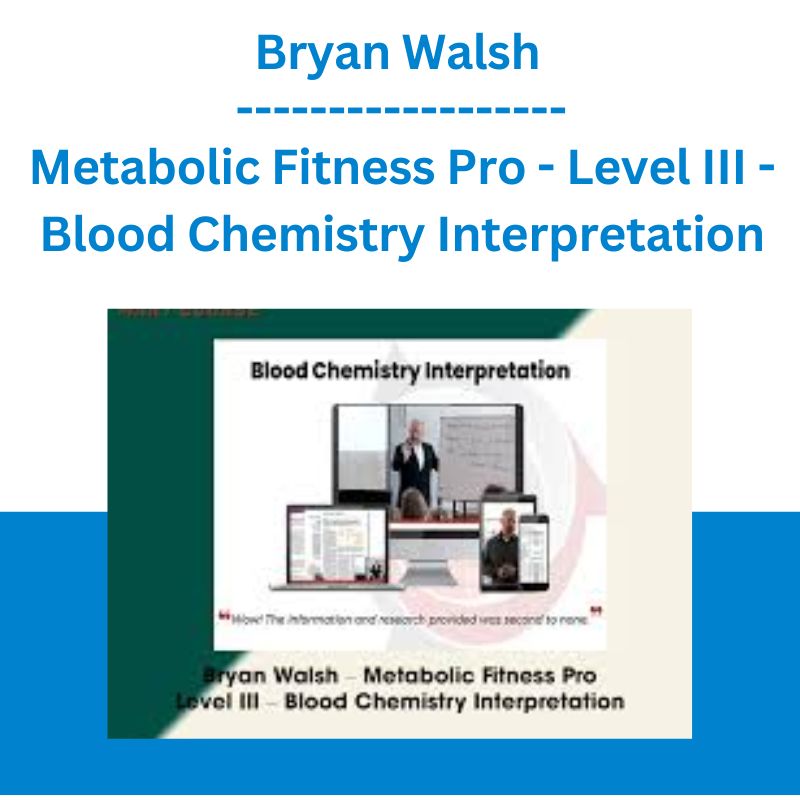








 George Fontanills & Tom Gentile - Optionetics 6 DVD Series Home Study Course (Digital Download)
George Fontanills & Tom Gentile - Optionetics 6 DVD Series Home Study Course (Digital Download)  Alphashark - The AlphaShark SV-Scalper
Alphashark - The AlphaShark SV-Scalper  Fred Haug - Virtual Wholesaling Simplified
Fred Haug - Virtual Wholesaling Simplified  Forexmentor - Recurring Forex Patterns
Forexmentor - Recurring Forex Patterns  Dave Landry - Stock Selection Course
Dave Landry - Stock Selection Course  Emanuele Bonanni - My Trading Way
Emanuele Bonanni - My Trading Way  Jesse Livermore Trading System - Joe Marwood
Jesse Livermore Trading System - Joe Marwood  Racing Workshop - Complete Online Package
Racing Workshop - Complete Online Package 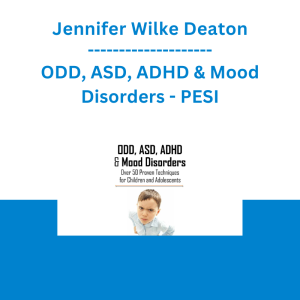 Jennifer Wilke Deaton - ODD, ASD, ADHD & Mood Disorders: Over 50 Techniques for Children & Adolescents - PESI
Jennifer Wilke Deaton - ODD, ASD, ADHD & Mood Disorders: Over 50 Techniques for Children & Adolescents - PESI  Matthew Kratter - Trader University
Matthew Kratter - Trader University  The Daily Traders – Exclusive Trading Mentorship Group
The Daily Traders – Exclusive Trading Mentorship Group 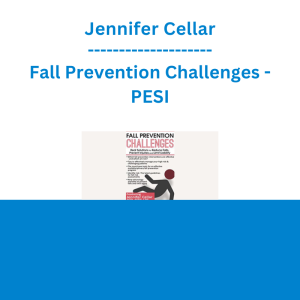 Jennifer Cellar - Fall Prevention Challenges: Real Solutions to Reduce Falls, Prevent Injuries and Limit Liability - PESI
Jennifer Cellar - Fall Prevention Challenges: Real Solutions to Reduce Falls, Prevent Injuries and Limit Liability - PESI  Atlas API Training - API 570 Exam Prep Training Course
Atlas API Training - API 570 Exam Prep Training Course 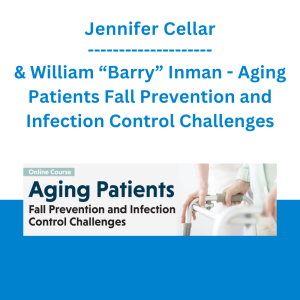 Jennifer Cellar & William “Barry” Inman - Aging Patients Fall Prevention and Infection Control Challenges
Jennifer Cellar & William “Barry” Inman - Aging Patients Fall Prevention and Infection Control Challenges  Money Miracle - George Angell - Use Other Peoples Money To Make You Rich
Money Miracle - George Angell - Use Other Peoples Money To Make You Rich  Crypto Dan - The Crypto Investing Blueprint To Financial Freedom By 2025
Crypto Dan - The Crypto Investing Blueprint To Financial Freedom By 2025